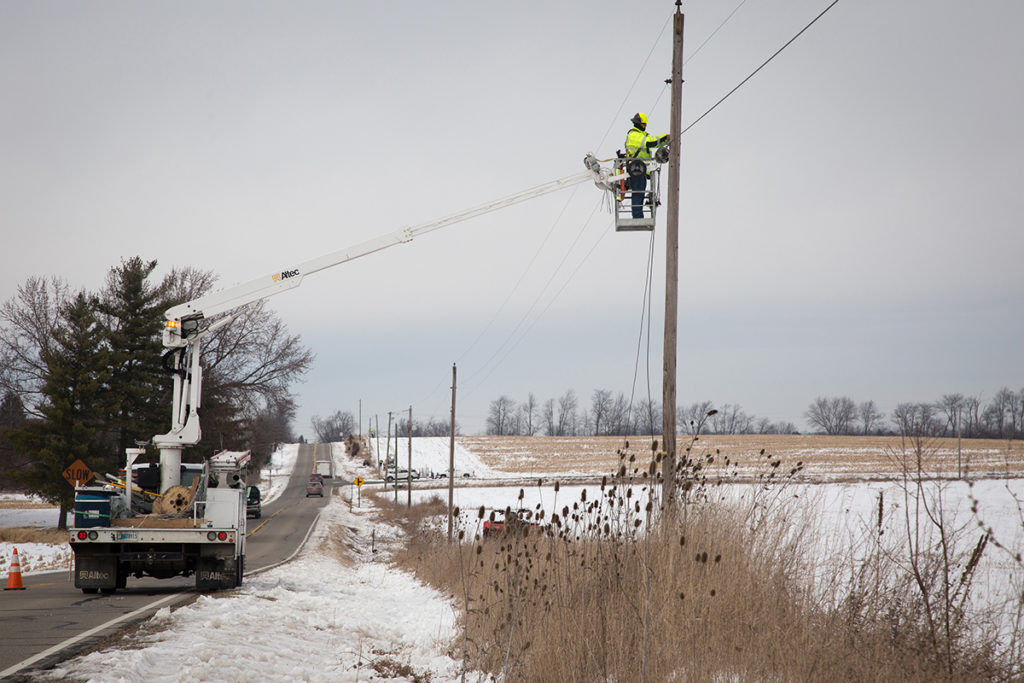
As Congress considers a new COVID-19 relief package, NRECA is supporting efforts to include a measure that would help electric cooperatives keep their struggling members connected to crucial broadband service.
A bipartisan bill introduced in the House and Senate, the Keeping Critical Connections Act, would provide funds to the Federal Communications Commission to reimburse small-business broadband providers, including co-ops, for voluntarily providing free or discounted services to students learning from home. It would also cover the costs for keeping low-income households connected when they cannot afford to make payments during the pandemic. Co-ops serve 93% of persistent-poverty counties in the U.S.
More than 150 electric co-ops provide broadband service, and many have agreed not to disconnect residential or small-business customers who can’t pay their bills because of the economic disruptions caused by COVID-19. Co-ops also have waived late fees and opened free Wi-Fi hotspots to anyone who needs them.
“The pandemic has taken an already important issue—broadband connectivity—and placed an even greater urgency on it,” said Kelly Wismer, NRECA’s lobbyist for broadband issues. “Co-op consumer-members need robust, affordable broadband access in their homes for distance learning, for working from home, for telemedicine and to stay in touch with loved ones.”
NRECA also is asking Congress to provide sustained funding for Rural Utilities Service broadband programs, such as the ReConnect Loan and Grant Program, to provide high-speed internet service to rural communities that lack access.
At the same time, a bipartisan group of House members has sent a letter to congressional leaders urging them to clarify that the $150 billion Coronavirus Relief Fund approved by Congress in March can be used to create permanent broadband infrastructure and not just temporary connections.
NRECA supports the letter, which also urges Congress to extend the deadline for states to use the funds beyond 2020. The effort is led by Reps. Robert Aderholt, R-Ala., and Peter Welch, D-Vt.
“It would be helpful to state governments and citizens to receive the clarifications and flexibility the letter seeks so that pandemic-related challenges can be addressed through tailored solutions that best fit each state, local, territorial and tribal government,” Wismer said.
The 30 House members who signed the Aug. 7 letter said that “a reliable high-speed internet connection is no longer a luxury, but a necessity.”
“The buildout of broadband is especially critical right now to provide support to children learning from home or patients seeking telehealth care services. We must ensure states have the option to build future-proof broadband infrastructure.”
Erin Kelly is a staff writer at NRECA.